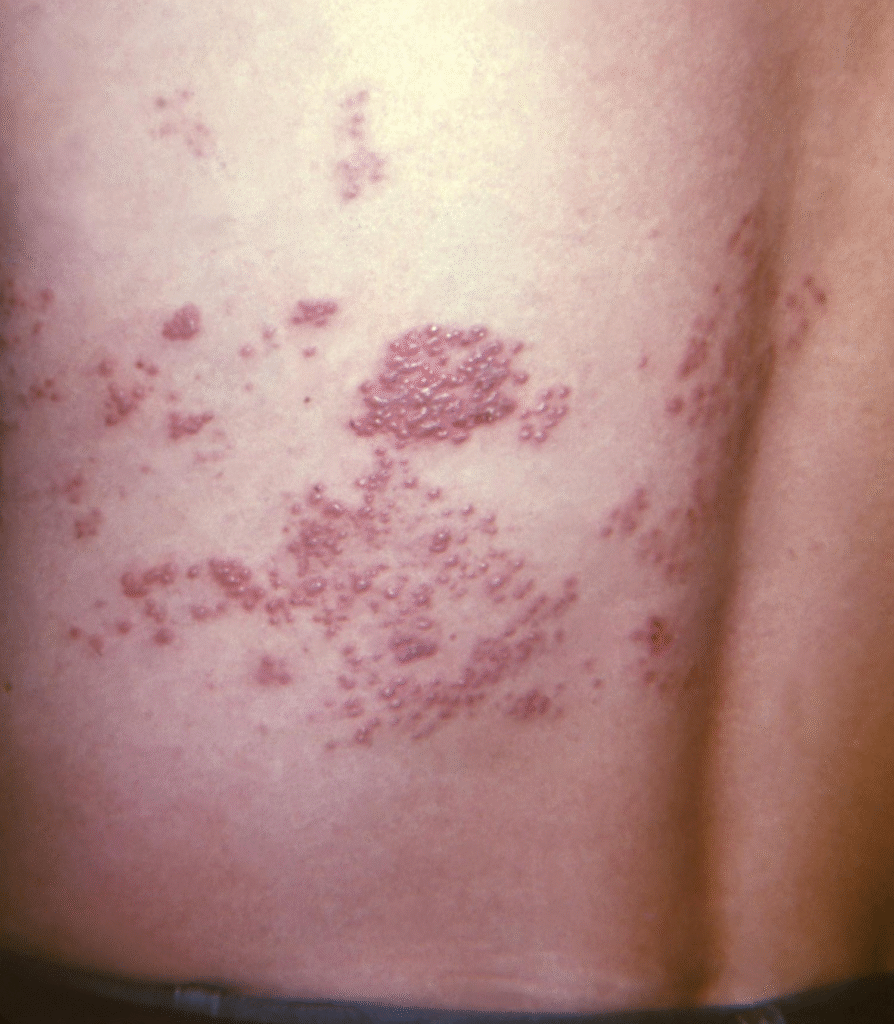ATLANTA — A vaccine that prevents shingles, a painful and sometimes debilitating rash, may also protect against far more serious conditions—including heart disease, dementia, and even premature death—according to new research from Case Western Reserve University presented this week at IDWeek 2025 in Atlanta.
The findings add to growing evidence that vaccines designed to prevent infections may also deliver unexpected benefits for long-term health, particularly among older adults.
Large-Scale Study Shows Significant Health Gains
The research team analyzed electronic health records from more than 174,000 adults aged 50 and older across 107 U.S. health systems. Participants were followed for periods ranging from three months to seven years after receiving the shingles vaccine. The study has not yet undergone peer review, but it was presented at IDWeek—one of the most respected gatherings for infectious disease experts worldwide.
Compared with adults who received a pneumococcal vaccine, those vaccinated against shingles showed remarkable reductions in several major health risks:
50% lower risk of vascular dementia
27% lower risk of blood clots
25% lower risk of heart attack or stroke
21% lower risk of death
Researchers say these results suggest the shingles vaccine may play a role in preventing not only infection but also the broader complications and inflammatory responses that can harm the heart and brain.
“Shingles is more than just a rash—it can raise the risk of serious problems for the heart and brain,” said Dr. Ali Dehghani, a doctor of internal medicine and the study’s presenting author. “Our findings show that the shingles vaccine may help lower those risks, especially in people already at higher risk for heart attack or stroke.”
Understanding Shingles and Its Risks
Herpes zoster, commonly known as shingles, is caused by the reactivation of the varicella-zoster virus, the same virus that causes chickenpox. After a person recovers from chickenpox, the virus remains dormant in the body and can reactivate decades later as shingles, particularly in older adults or those with weakened immune systems.
The infection typically begins with pain or tingling in one area of the body, followed by a blistering rash that traces along nerve pathways. Symptoms often include fever, headache, fatigue, and light sensitivity. While shingles itself is rarely life-threatening, it can lead to postherpetic neuralgia (PHN)—severe nerve pain that can persist for months or even years after the rash heals.
In some cases, shingles can also cause neurological complications, skin infections, or vision loss, especially when the virus affects the eye (a condition known as ophthalmic zoster).
Shingrix: The Recommended Vaccine
The Shingrix vaccine, manufactured by GlaxoSmithKline, received U.S. approval in 2017 and quickly replaced the older Zostavax vaccine, which is no longer available. The Centers for Disease Control and Prevention (CDC) recommends Shingrix for all adults aged 50 and older, regardless of whether they have previously had shingles or received another zoster vaccine.
Administered in two doses, Shingrix has shown more than 90% effectiveness in preventing shingles and postherpetic neuralgia. Common side effects are mild, including arm soreness, fatigue, and mild fever for a day or two after vaccination.
Possible Link Between Infection and Cardiovascular Disease
Scientists have long suspected a connection between shingles and increased cardiovascular risks. The virus can trigger inflammation in the arteries, damage blood vessels, and increase the likelihood of blood clots—factors that can contribute to heart attacks or strokes.
By preventing shingles or reducing its severity, vaccination may also lower the risk of these downstream complications.
Dr. Dehghani’s team believes that the new data reinforces the value of preventive care, particularly among aging adults. “Vaccines can offer more than just protection from infection—they can help maintain overall health and longevity,” he said.
Dementia Prevention: A Promising Link
One of the most striking findings from the study was the 50% lower risk of vascular dementia in those who received the shingles vaccine. Vascular dementia is the second most common type of dementia after Alzheimer’s disease and occurs when blood flow to the brain is reduced due to blocked or damaged blood vessels.
Experts say chronic inflammation, a known effect of shingles, may accelerate the kind of vascular damage that leads to cognitive decline. The idea that a vaccine could reduce dementia risk is an exciting development that warrants further study.
Dr. Dehghani emphasized that while the results are promising, they should be interpreted cautiously until the full study is peer-reviewed and published. However, he added that “these early findings highlight a potential new benefit of a vaccine that many older adults already receive.”
About IDWeek 2025
The findings were unveiled at IDWeek, the annual meeting co-hosted by the Infectious Diseases Society of America (IDSA), the Society for Healthcare Epidemiology of America, the HIV Medicine Association, the Pediatric Infectious Diseases Society, and the Society of Infectious Diseases Pharmacists.
The event brings together thousands of infectious disease specialists, researchers, and public health officials to discuss emerging data and innovations in disease prevention and treatment.
A Call for Broader Vaccine Awareness
Although vaccination rates among older adults have risen in recent years, many still skip recommended shots, including those for shingles, pneumonia, and influenza. Experts say the new research underscores how vaccines can improve not just infection control, but long-term health and quality of life.
Public health officials hope studies like this one will encourage more people to get vaccinated—not just to avoid shingles, but to potentially safeguard their hearts and minds as well.

